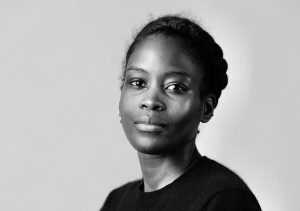Writer and producer Clarisse Makundul talks about her show ‘Under the Kundè Tree’ to play at the Southwark Playhouse

Leading up to its independence in 1960, Cameroon, a West African nation, experienced over a century of colonial rule. Taken over by various European powers, in what is known as the ‘Partition of Africa’, societal structures would fall into accordance of the ruling powers that be. Inspired by her grandmother’s story, having lived in Cameroon during the little known ‘Bamileke War’ during the 1950s (the conflict’s duration was from 1955 to 1964), writer and director Clarisse Makundul presents Under the Kundè Tree – a piece placing a young woman growing up during this turbulent time at the fore. Ahead of the show, to be staged from the 24th May until the 27th June at the Southwark Playhouse, Clarisse tells us more about exploring this important narrative further, accessing our post colonial era and what audiences can expect from the show.
Hi Clarisse, your show Under the Kundè Tree will show from 24th May to 17th June at the Southwark Playhouse. How are you feeling ahead of the show?
I still can’t believe this is happening. Everyone keeps telling me that once we’re in tech week, which is next week, everything will become real. Until then, I’m just trying as best as I can to be in the moment and enjoy the process. But, yes, what an insane honour! I’m beyond thrilled and grateful to be given the opportunity to tell this important story and work alongside such a phenomenal cast and production team.
Under the Kundè Tree is inspired by your grandmother’s generation in Cameroon – the play following a young woman, Sara, struggling to balance her heart’s desire and the pressure to fulfil traditional familial obligations during a time of conflict and the fight for decolonisation. The play exploring the challenges that women like Sara faced everyday in the 1950s during a violent turbulent period. What inspired you to explore this narrative further?
I was very close to my grandmother, but when she died, I realised that there was a big chunk of her life that I didn’t know about, what it was like for her to be a woman in the 1950s and live in a colonised country. The War of Independence remained little known for a very long time, and the role of women in Cameroonian history has always been overlooked, that’s why I wanted to highlight the essential part they, although largely illiterate, played in fighting for independence, from petitioning the United Nations for the release of their husbands and sons to going to the battlefield with other men for the good of Cameroon.
We’re living in a time post colonisation, where we’re looking back at history, looking at the impact of colonisation and inevitably asking how we move forward. The conflict your show is about, referred to as the ‘Hidden War’, due to a lack of global headlines and education on the events that occurred. How are you accessing this particular moment in time?
I did a lot of reading and researching. I also collaborated with dramaturgs Gregoire Colin and Laure Bachelor-Mazon, who both know the history of Cameroon very well, especially Laure who specialises in African History. It is thanks to them that I was able to make this story a bit more realistic and authentic. With that being said, Under the Kundè Tree is not just about the Cameroonian Independence War, it is also about our protagonist, Sara, who struggles, sacrifices and defies society, her family and tradi4onal norms and beliefs for the sake of love.
What have you learned/taken away from creating the production?
How important it is to have a clear vision for a project.
What can audiences expect from the production?
Our director Ebenezer Bamgboye said it best: “We are seeking to create an immersive, visually arresting and deeply theatrical production that entertains audiences whilst confronting them with the previously hidden, dark history of the Western world.” So expect a lot of movement, music.
What would you like for audiences to take away from the production?
Knowledge of the events and understanding. I hope audiences will enjoy it.
Questions by Lucy Basaba.
Under the Kundè Tree will play from Wednesday 24th May until Saturday 27th June 2023 at Southwark Playhouse. To find out more about the production, visit here…


Leave a Comment